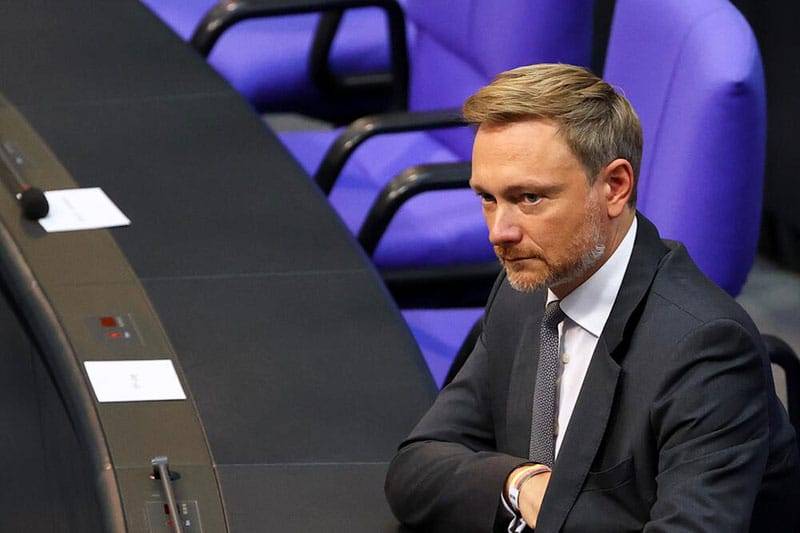Close to liberals—this was his path. At the age of 17, he took over as chairman of the “Liberal Students North Rhine-Westphalia (NRW)” and shortly afterwards founded the “Young Liberals” in his home town of Wermelskirchen. After his speech at the state party conference in 1998 concerning the reorientation of the FDP towards younger people, he was promptly elected state chairman in NRW. As a young student, the current Finance Minister was more interested in politics than numbers; he obtained his master’s degree in political science with minors in philosophy and constitutional law.

Records in the Party’s History
Under party chairman Guido Westerwelle in particular, Christian Lindner was given the opportunity to change things as party secretary. He was tasked with drawing up a new basic programme. With little success, he withdrew into state politics in the NRW. When the party missed the hurdle required to enter the Bundestag in 2013 under the leadership of Philipp Rössler for the first time since its founding in 1948, capturing only 4.8% of the vote, the then 34-year-old Lindner was elected as the youngest federal chairman in the party’s history.
Lindner set out to modernise the FDP and shed its image as the party for old, rich men. He focused on issues like education and improving Germany’s digital infrastructure. He overhauled the party logo to rebrand it as youthful and forward-looking.
In the 2017 federal election, Lindner brought the FDP back from political near-death, more than doubling the party’s previous result. It seemed that the party would play a decisive role as part of a new coalition government, including Merkel’s centre-right CDU party and the Greens. But after weeks of coalition talks and in the midst of late-night negotiations, Lindner abruptly walked away, saying he had not been able to push through FDP policies. For his part, Lindner depicted the decision as a matter of principle. “It is better for us not to govern at all than to govern wrongly,” he said at the time.
Wealth Aggregation: Simple, Dynamic, and Secure Beyond Compare. Discover the Altoo Wealth Platform!
At the Top of Success
In the 2021 election campaign, Lindner went on to portray his party as acting as a bulwark against the threat of a leftward shift in German politics. His party, he said, stood for personal freedom, business-friendly policies, and tax cuts.
The elections were not only a success for Lindner on a party level—his share of the second vote was 11.5%, giving the FDP a place in the federal government’s traffic light coalition—but also on a personal level. The German Prime Minister Olaf Scholz appointed him Finance Minister, and he also became the Federal Chancellor’s second deputy.
Enter the 44-year-old Lindner, an air-force reservist and swashbuckler, at least by the staid standards of German politics. He is not afraid to set the tone of the debate, even if he comes across as offensive. For example, he wants to “put an end to dreams of phasing out coal-fired power by 2030” as long as it is not clear that energy is available and affordable. He said this in an interview with the Kölner Stadtanzeiger newspaper. In the coalition agreement, however, the government is aiming to do just that: not to phase out coal by 2038, as the Coal Phase-out Act currently stipulates, but “ideally” by the end of this decade.
Known as a man of change, he strongly supports the digitalization of the country. In 2022, Christian Lindner opened the Digital Finance Forum together with experts from Germany’s digital finance industry under the motto “Shaping the Future of Finance”.
“The digital transformation is changing how we pay, save, invest, and insure ourselves. My goal is to make Germany the leading location for digital financial technologies. (…) We want to find the best solutions through dialogue between business, science, and politics. As Federal Minister of Finance, I want to create good framework conditions that promote innovation,” said Lindner at the opening.









